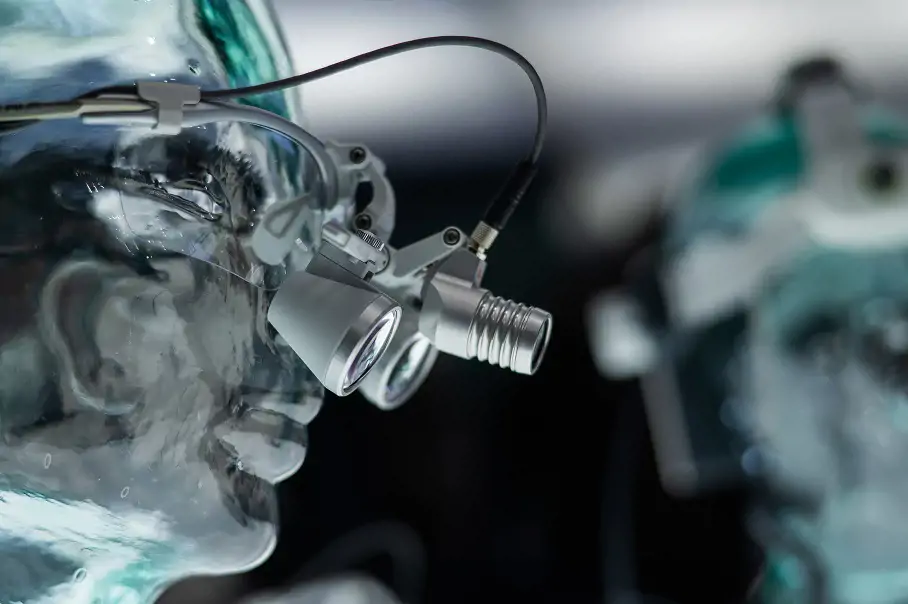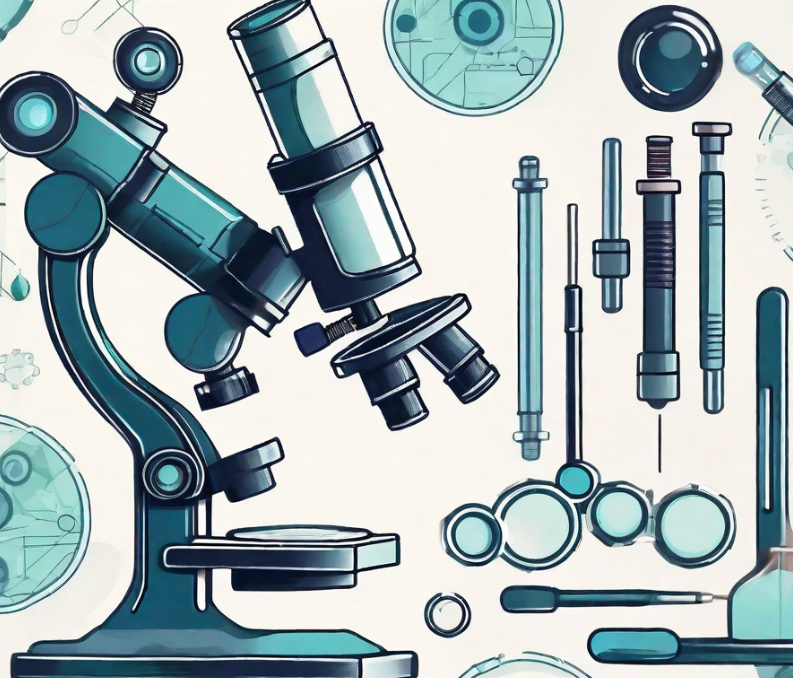
Quick CV Dropoff
Send us your CV

In today's competitive job market, hiring the right talent is crucial for the success of any organization. This is especially true in the life sciences sector, where engineering development specialists play a vital role in driving innovation and advancing technologies. However, finding and attracting top-notch professionals in this field can be a daunting task. In this article, we will guide you through the process of hiring engineering development specialists in the life sciences sector and provide valuable insights to help you master this art.
Before diving into the hiring process, it's essential to have a clear understanding of the role of engineering development specialists in the life sciences sector. These professionals play a crucial role in advancing the field of life sciences by designing, developing, and implementing engineering solutions that improve the efficiency and effectiveness of processes within the industry.
Engineering development specialists possess a unique skill set that allows them to tackle complex problems and create innovative solutions. They combine their expertise in engineering principles and methodologies with specialized knowledge in the life sciences industry to drive continuous improvement and ensure compliance with regulatory standards.
These specialists are at the forefront of technological advancements in the life sciences sector. They work closely with scientists, researchers, and other professionals to develop cutting-edge solutions that have a direct impact on human health and safety.
When hiring engineering development specialists, it's crucial to identify candidates with the right skills and qualifications. The ideal candidate should possess a strong foundation in engineering principles and methodologies, as well as specialized knowledge in the life sciences industry.
Proficiency in technical software is a key skill to look for in candidates. Engineering development specialists often utilize advanced software tools to design and simulate complex systems, analyze data, and optimize processes. Additionally, problem-solving abilities are essential as these professionals are constantly faced with challenging and intricate problems that require innovative solutions.
Attention to detail is another crucial skill for engineering development specialists. In the life sciences industry, even the smallest oversight can have significant consequences. These specialists must have a meticulous approach to their work to ensure accuracy and precision in their designs and implementations.
Effective communication skills are also vital for engineering development specialists. They need to collaborate with cross-functional teams, present their ideas and findings to stakeholders, and effectively communicate complex technical concepts to non-technical individuals.
One of the unique challenges in hiring engineering development specialists in the life sciences sector is the need for industry-specific knowledge. As these professionals work on projects that directly impact human health and safety, familiarity with regulatory requirements and compliance standards is essential.
Look for candidates who have direct experience or a proven ability to quickly adapt to the specific demands of the life sciences industry. They should be well-versed in the regulations and guidelines set by regulatory bodies such as the Food and Drug Administration (FDA) and the European Medicines Agency (EMA).
Furthermore, engineering development specialists should stay updated with the latest advancements and trends in the life sciences industry. This includes knowledge of emerging technologies, new research methodologies, and evolving regulatory landscapes.
Having industry-specific knowledge allows engineering development specialists to navigate the unique challenges and complexities of the life sciences sector effectively. It enables them to develop solutions that not only meet the technical requirements but also comply with the stringent regulations and ensure the safety and well-being of individuals.
Now that we've laid the foundation, let's dive into the intricacies of the hiring process for engineering development specialists in the life sciences sector. From crafting an effective job description to making the final decision and onboarding the selected candidate, each step is vital in finding the right fit.
When it comes to hiring engineering development specialists in the life sciences sector, the process can be both challenging and exciting. The demand for top talent in this field is high, and finding the perfect candidate requires careful planning and execution.
The first step in attracting qualified candidates is to create an engaging and comprehensive job description. This document serves as the foundation for the entire hiring process and plays a crucial role in attracting the right candidates.
When crafting a job description for an engineering development specialist in the life sciences sector, it's important to clearly outline the responsibilities, qualifications, and expectations for the role. This will help potential candidates understand what is expected of them and determine if they are a good fit for the position.
Additionally, it's essential to highlight the impact and importance of the position within your organization. By showcasing the unique opportunities your company has to offer, you can capture the attention of potential candidates and differentiate yourself from other employers in the industry.
Once you have received applications and resumes, it's time to screen and interview candidates. This step in the hiring process allows you to evaluate each candidate's qualifications, skills, and cultural fit.
Developing a structured screening process is crucial to efficiently filter out candidates who do not meet the required qualifications. This can involve reviewing resumes, conducting phone screenings, or administering skills assessments.
When it comes to interviewing candidates for an engineering development specialist role in the life sciences sector, it's important to go beyond assessing technical competencies. Cultural fit and problem-solving abilities are equally important factors to consider. By incorporating behavioral and situational questions into the interview process, you can gain insights into a candidate's ability to thrive in your organization's unique environment.
Consider incorporating technical exercises or case studies to evaluate candidates' skills in real-life scenarios. This can provide a more accurate assessment of their abilities and give you a glimpse into how they would perform on the job.
After conducting multiple rounds of interviews, it's time to make the final decision. This is a critical step in the hiring process as it determines the candidate who will join your team and contribute to your organization's success.
When making the final decision, it's important to consider not only the candidate's qualifications but also their enthusiasm, potential for growth, and alignment with your company's values and mission. Finding a candidate who not only has the necessary skills but also shares your organization's vision can lead to long-term success and a positive work culture.
Once the offer has been extended and accepted, it's crucial to ensure a smooth onboarding process. Onboarding is the process of integrating a new hire into your organization and providing them with the necessary training and support to hit the ground running.
During the onboarding process, it's important to introduce the new hire to their team members, provide them with an overview of the company's policies and procedures, and offer any necessary training. This will help the new hire feel welcomed and prepared to contribute to the organization from day one.
By following a comprehensive hiring process, from crafting an effective job description to making the final decision and onboarding the selected candidate, you can increase your chances of finding the right fit for your engineering development specialist role in the life sciences sector.
The field of engineering development in the life sciences sector presents unique challenges in the hiring process. Addressing these challenges proactively can give you a competitive edge in attracting and retaining top talent.
The rapid advancements in technology and the increasing complexity of projects have created a significant skills gap in the life sciences engineering sector. This gap poses a challenge for companies looking to hire engineering development specialists who can effectively contribute to the industry's growth and innovation.
To overcome this challenge, it is crucial to invest in continuous learning and development programs for existing staff. By providing opportunities for upskilling and staying updated with the latest advancements, companies can ensure that their employees are equipped with the necessary skills to tackle complex engineering projects.
Collaborating with educational institutions is another effective strategy to bridge the gap between academia and industry. By partnering with universities and colleges, companies can establish internship programs, co-op opportunities, and research collaborations. These initiatives not only provide students with hands-on experience but also allow companies to identify and nurture promising talent early on.
Additionally, offering competitive compensation packages and career advancement opportunities is essential to attract the best talent. Engineering development specialists are in high demand, and companies must provide enticing incentives to stand out from competitors.
In a highly competitive job market, retaining top talent can be a struggle. Once you have successfully hired engineering development specialists, it is crucial to create an environment that encourages their long-term commitment to the company.
Providing opportunities for professional growth and advancement is key. Engineering development specialists thrive in environments where they can continuously learn and take on new challenges. By offering training programs, mentorship opportunities, and clear career progression paths, companies can demonstrate their commitment to their employees' development.
Creating a positive work culture that values innovation and collaboration is also essential. Engineering development specialists are often at the forefront of technological advancements, and they need an environment that fosters creativity and teamwork. Encouraging open communication, recognizing and rewarding innovative ideas, and promoting cross-functional collaboration can contribute to a positive work culture that retains top talent.
Furthermore, offering competitive compensation and benefits packages is crucial. Salary alone may not be the sole determining factor for retaining top talent, but it is undoubtedly a significant consideration. Companies should regularly review industry standards and adjust their compensation packages to remain competitive.
Regularly reviewing employee satisfaction and engagement levels is vital to address any potential issues before they escalate. Conducting surveys, holding regular performance reviews, and fostering open dialogue can help identify areas for improvement and address concerns promptly.
In conclusion, hiring and retaining engineering development specialists in the life sciences sector require a proactive approach. By addressing the skills gap, providing growth opportunities, fostering a positive work culture, and offering competitive compensation, companies can attract and retain top talent, gaining a competitive edge in the industry.
In the digital age, leveraging technology is crucial for streamlining the hiring process and attracting top talent.
AI and machine learning technologies have revolutionized the recruitment process, enabling faster and more accurate candidate screening and matching. Implement AI-powered applicant tracking systems and resume screening tools to automate repetitive tasks and enhance the efficiency of your hiring process.
Professional networking platforms, such as LinkedIn, have become invaluable tools for reaching a vast pool of talent. Create a strong online presence for your organization, actively engage with potential candidates, and leverage your network to attract passive job seekers who may not be actively searching for new opportunities.
As the life sciences industry continues to evolve, so does the hiring landscape. To stay ahead of the curve, it's crucial to embrace emerging trends and adapt your hiring strategies accordingly.
Stay informed about emerging trends in recruitment and hiring, such as remote work arrangements, flexible scheduling, and diversity and inclusion initiatives. These trends can significantly impact your ability to attract top engineering development specialists in the life sciences sector.
To future-proof your organization's hiring strategy, prioritize continuous learning and development. Encourage employees to participate in professional development programs, provide opportunities for cross-functional training, and foster a culture of continuous improvement and innovation. In doing so, you will attract forward-thinking candidates who are eager to grow and thrive in the dynamic field of life sciences engineering.
In conclusion, hiring engineering development specialists in the life sciences sector requires a strategic and thoughtful approach. By understanding the role, identifying the necessary skills and qualifications, and leveraging technology, you can attract and retain top talent that will drive innovation and propel your organization into the future. Embrace the challenges and opportunities this field presents, and you will master the art of hiring engineering development specialists in the life sciences sector. Together, we can ensure your organization's success in building a high-performing team. Reach out to us today, and let's start this journey together.